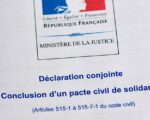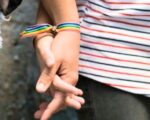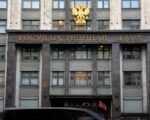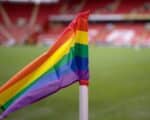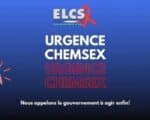>> Muslim states block gay groups from U.N. AIDS meeting; U.S. protests
[spacer]
Onze associations LGBT, dont « Global Action for Trans Equality », pourraient ne pas assister le mois prochain à une réunion de l’ONU portant sur les questions du VIH et du SIDA.
C’est l’Organisation de la coopération islamique (OCI), qui regroupe 51 pays musulmans, qui a demandé leur exclusion, dans une lettre datée du 26 avril et obtenue mercredi par l’Associated Press. L’OCI ne mentionne toutefois aucune raison particulière pour justifier sa requête.
Les ONG concernées sont originaires de l’Égypte, l’Estonie, la Guyanne, la Jamaïque, le Pérou, la Thaïlande, l’Ukraine, les États-Unis, le Kenya et d’ailleurs en Afrique. Tous ces groupes militent pour les droits des homosexuels, lesbiennes et personnes transgenres.
Les États-Unis, l’Australie, l’UE et le Canada ont écrit au président de l’Assemblée Générale, Mogens Lykketoft, pour contester cette décision et exprimer leur inquiétude « quant à la possibilité que des pays membres puissent exclure des groupes de la société civile d’une conférence sans fournir de justifications », a d’ailleurs insisté l’ambassadeur canadien à l’ONU, Michael Grant.
Selon l’ambassadrice américaine aux Nations unies, l’exclusion des groupes LGBT pourrait être très préjudiciable à la lutte contre l’épidémie. « Considérant notamment que les personnes transgenres ont 49 fois plus de risques de vivre avec le VIH que le reste de la population, leur exclusion de la rencontre ne fera qu’entraver le progrès mondial de la lutte contre le VIH/sida et l’objectif d’une génération sans sida », insiste Samantha Power dans son courrier daté du 13 mai.
Mercredi, Mogens Lykketoft a répondu aux protestations, soulignant qu’il avait fait « tout ce qui était en son pouvoir » pour assurer la plus grande participation possible.
Ce n’est pas la première fois que des tensions se manifestent aux Nations Unies concernant les droits des LGBT, surtout depuis que l’organisation a accordé la présidence du panel sur les droits de l’homme à l’Arabie Saoudite, particulièrement opposée à l’inclusion des droits des LGBT dans l’agenda de l’ONU.
L’année dernière, la Russie avait également introduit une requête pour tenter de bloquer une initiative de 2014, accordant pour la première fois aux couples de même sexe mariés légalement, les mêmes avantages matrimoniaux que leurs collègues hétérosexuels. Elle avait été soutenue dans cette démarche par la Chine, le Pakistan et l’Arabie Saoudite, toujours, qui a d’ailleurs qualifié « ces relations » de « moralement inacceptables ». Mais la motion a été rejetée.
[spacer]
>> A group of 51 Muslim states has blocked 11 gay and transgender organizations from attending a high-level meeting at the United Nations next month on ending AIDS, sparking a protest by the United States, Canada and the European Union.
Egypt wrote to the president of the 193-member General Assembly on behalf of the Organization of Islamic Cooperation to object to the participation of the 11 groups. It did not give a reason in the letter, which Reuters saw.
Samantha Power, U.S. ambassador to the United Nations, wrote to General Assembly President Mogens Lykketoft and said the groups appeared to have been blocked for involvement in lesbian, gay, bisexual and transgender advocacy.
« Given that transgender people are 49 times more likely to be living with HIV than the general population, their exclusion from the high-level meeting will only impede global progress in combating the HIV/AIDS pandemic, » Power wrote.
U.N. officials said the European Union and Canada also wrote to Lykketoft to protest the objections by the OIC group, whose members include Saudi Arabia, Iran, Indonesia, Sudan and Uganda.
The issues of LGBT rights and participation in events at the United Nations have long been contentious. U.N. Secretary-General Ban Ki-moon has advocated for LGBT equality but faced opposition from African, Arab and Muslim states as well as Russia and China.
« We are deeply concerned that at every negotiation on a new General Assembly gathering, the matter of NGO (non-governmental organization) participation is questioned and scrutinized, » Power wrote.
« The movement to block the participation of NGOs on spurious or hidden grounds is becoming epidemic and severely damages the credibility of the U.N., » she said.
In 2014, Ban said the U.N. would recognize all same-sex marriages of its staff, allowing them to receive its benefits. Russia, with the support of 43 states including Saudi Arabia, China, Iran, India, Egypt, Pakistan, and Syria, unsuccessfully tried to overturn the move last year.
In February, the 54-member African Group, the Organization of Islamic Cooperation and the 25-member Group of Friends of the Family led by Belarus, Egypt and Qatar protested six new U.N. stamps promoting LGBT equality.
The Group of Friends of the Family promotes the traditional family. It launched a photo exhibit, « Uniting Nations for a Family Friendly World, » at the U.N. on Tuesday, which is the International Day Against Homophobia, Transphobia and Biphobia.




